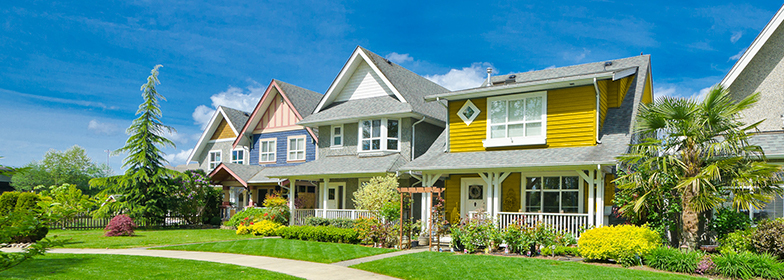
What happens if you inherit a home with a mortgage?
Inheriting a home from a loved one can be a wonderful gift, but it can impact your financial situation if there’s a mortgage involved. It helps to consider the financial aspects of your inheritance before the time comes, especially if you expect to be left real estate. We’re here to help you prepare for what happens if you inherit a home with a mortgage.
If you inherit a home, do you inherit the mortgage?
About two-thirds of homes carry a mortgage. That means there’s a good chance the home you inherit will include one, too. But just because there’s an outstanding mortgage on the property doesn’t mean you’ll inherit that. When you inherit property, one of the first questions to ask the estate’s executor is, “Who’s responsible for paying for the mortgage, the estate or me?”
When someone passes away before a loan or other debt is paid in full, their debt doesn’t just go away. The estate of the deceased person becomes responsible for settling any unpaid debts. The probate court oversees the process of paying the deceased person’s debts. If you’re not familiar with the probate process, Investopedia defines it as “the analysis and transfer administration of estate assets previously owned by a deceased person. When a property owner dies, (their) assets are commonly reviewed by a probate court.”
Here are two of the possible scenarios for a mortgage on a home you inherit.
- If your inheritance is specified as free and clear of the mortgage, and there are assets to pay it, the estate may pay off the mortgage.
- If there are no assets or not enough assets to pay off the mortgage, you may also inherit the debt.
Options for inheriting a home with a mortgage
When you inherit a home with a mortgage and decide to move-in or rent it out, you have the option to assume the loan. Here are three options for what to do with your inheritance.
- Assume the loan Federal law offers protection in some instances allowing relatives to assume the loan under the existing terms of the mortgage.
- Pay off the loan If you have the funds, you can pay the entire mortgage loan in full. Just be sure to leave yourself a financial reserve for emergencies or other expenses. You can also pay off the existing loan by refinancing the loan to lower your monthly payments or change the loan term.
- Sell the home In circumstances where more than one person has inherited the home, you may choose to sell the home and split the proceeds.
If you’re unsure which option is best, reach out to a loan officer to review your situation.
What happens if you inherit a home with no mortgage?
If you inherit real estate that’s paid off, that’s great news! Homeownership has many advantages over renting, but be aware that you’re still on the hook for the usual expenses related to owning a home. Budget accordingly so you’ll be prepared when bills like property taxes, homeowners’ insurance and maintenance services come due.
Do you pay taxes when inheriting a home?
Depending on the property’s location, inheriting a home may have state tax liabilities. An inherited home sale could also result in a federal capital gains tax if the sale price is more than the home’s fair market value. For further guidance on your tax liability, consult a tax professional regarding your specific tax implications.
If you have questions about inheriting a home with a mortgage, our knowledgeable mortgage loan officers are here to help.
The above information is for educational purposes only. All information, loan programs and interest rates are subject to change without notice. All loans subject to underwriter approval. Terms and conditions apply. Always consult an accountant or tax advisor for full eligibility requirements on tax deduction.
